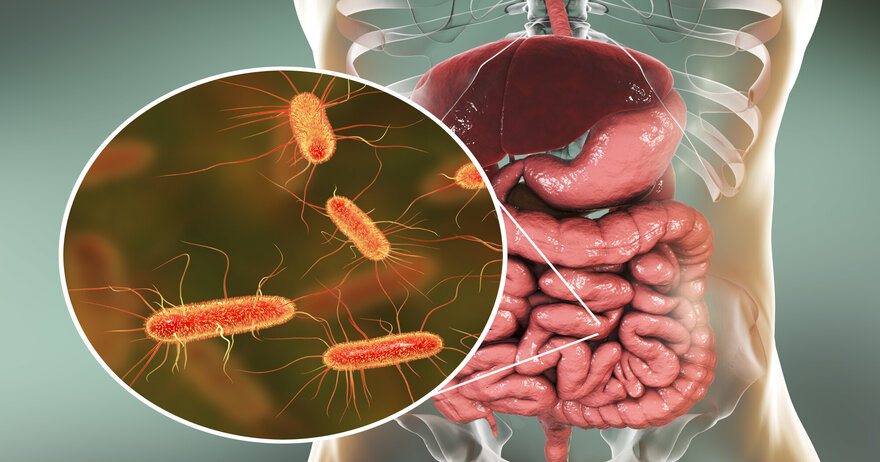Many people deal with some form of anxiety from time to time. However, over 40 million Americans have an actual anxiety disorder.
Knowing what to watch out for can help you or someone you care about stay on the right side of this statistic.
Did you know that gut bacteria and anxiety are strongly linked?
Someone’s digestive health can heavily impact their mental health.
Taking the time to address any gut bacteria problems can help alleviate anxiety symptoms.
Understanding gut bacteria is the first step to addressing these issues.
This gut bacteria guide will explain what gut bacteria is and what the effects are on anxiety.
What is Gut Bacteria?
The body is full of bacteria — around 40 trillion.
Your gut is no exception. Together, the bacteria in your gut along with other microorganisms are called a gut microbiome.
Food digestion, vitamin production, and immune system development are just a few of the many essential tasks the gut bacteria (microbiome) perform.
Obesity, mental health problems, and impaired immune function have all been linked to a dysfunction in the gut flora.
Gut Bacteria Effects on Anxiety
The relationship between gut bacteria and anxiety is nicknamed the “gut-brain axis.”
Evidence suggests that the “gut-brain axis” can help control brain function by supplying vital inflammatory minerals and vitamins to the billions of microorganisms in the gut that play important immune and metabolic roles.
Instead of just being physically anxious, you can also be mentally anxious.
This distribution of vitamins and minerals throughout your body (and especially in your gut) is essential for hormonal regulation, which can heavily impact mood.
Stress in the gut is also signaled to the brain, which can essentially double your stress and add to your anxiety.
Symptoms of Unhealthy Gut Bacteria
Once again, the presence of anxiety could already be an indication of unhealthy gut bacteria.
But some other symptoms of an unhealthy gut are:
- Gas
- Bloating
- Unintentional weight fluctuations
- Skin Issues
How to Improve Gut Bacteria
There are several ways to improve the state of one’s gut bacteria. Whether you just switch up your diet or completely overhaul your lifestyle, we’ll key you in on several scientifically backed ways to improve your gut flora.
1. Use Probiotic and Prebiotic Supplement
Supplementing your diet with probiotics may improve your gut health.
Probiotics are live, healthy bacteria.
Prebiotics are food sources for the microorganisms in your digestive system.
Using both to supplement your gut bacteria could help your digestive system function normally.
Make sure to make the most of the prebiotic-probiotic relationship and either get both prebiotic and probiotic supplements or supplements with both probiotics and prebiotics in each dosage.
2. Change Up Your Diet
A healthy diet is critical in maintaining good digestive health.
To fortify your diet with healthy gut bacteria, eat highly probiotic foods.
Such probiotic options include:
- Yogurt
- Kimchi
- Miso
- Kombucha
- Pickles
Probiotics are even more helpful to the gut when fed prebiotics. So include prebiotic foods such as these into your diet:
- Dandelion roots
- Garlic
- Leeks
- Barley
- Oats
Chronic inflammation can minimize your body’s ability to absorb nutrients.
These nutrients are critical in hormonal regulation, affecting your mental health.
Such inflammatory foods to avoid are:
- Refined carbohydrates
- Red meats
- Processed meats
On the other hand, certain foods can fight inflammation, negating complications it could otherwise cause.
Such anti-inflammatory foods include:
- Tomatoes
- Leafy greens
- Olive oil
- Fatty fish
- Nuts
Certain foods are very fibrous, which can bulk up your gut with prebiotics and get it moving. This promotes healthy bowel movements.
Such fibrous foods include:
- Oats
- Grapefruit
- Chickpeas
- Cabbage
This list is packed with foods that can fortify your everyday diet with essential, pro-gut nutrients.
Supplements such as Aluva’s Life Greens superfood powder, containing both probiotics and prebiotic veggies, can provide a daily boost to your gut and to your general health.
3. Exercise
Our bodies support the health and growth of our gut bacteria.
That’s because our gut bacteria produce vitamins, fatty acids, and amino acids.
These elements are critical for various bodily processes such as the immune system, digestion, mood regulation, etc.
Regular exercise quickens the process by increasing the number of microbial species in the stomach and encouraging the growth of bacteria. It also increases blood circulation, which could help the digestive system get going.
You don’t need a 2-hour gym session to reap exercise’s benefits.
Instead, start with minor improvements.
Even a brisk 30-minute daily walk instead of no activity is much better for your gut in the long run.
4. Limit Alcohol Intake
Alcohol can be debilitating to the digestive tract, especially in large amounts and concentrations.
Alcohol can kill many of the beneficial bacteria found in the intestines. These bacteria are required for a healthy gut and many vital bodily functions.
That’s why you might feel bloated for quite a while after a night of heavy drinking.
Your body’s struggling to produce enough bacteria to replenish the amount of bacteria the alcohol you’ve consumed killed off.
Moderation is always key.
But if you can, it’s best to drink as minimally as possible.
5. Use Relaxation Techniques
Gut and anxiety have a cyclical relationship. Gut health can impact stress, but anxiety can do the same for gut health.
This can lead to a vicious cycle that leads to a “stressed-out” you with an unhealthy gut.
It’s a great idea to address both your gut bacteria and anxiety. That way, you’ll help your anxiety symptoms improve and indirectly impact your gut’s health!
A few relaxation methods include:
- Breathing exercises
- Yoga
- Proper sleeping schedule
- Counseling
Gut Bacteria and Anxiety — A Surprising Relationship
Gut bacteria and anxiety have a critical relationship with your body and mind. When coupled with other anxiety-relieving methods, fixing your gut bacteria can help improve your mental health.
At Luv My Gut, we understand how important a healthy, natural lifestyle is to one’s gut health.
That’s why we regularly post content educating and connecting with readers who want to create or maintain a healthy lifestyle.
If you’re new here, catch up with a few of our articles and read more about us.
All questions are welcomed, so if you have any questions regarding the connection between bad gut bacteria and anxiety. Please leave them in the comments section down below.


